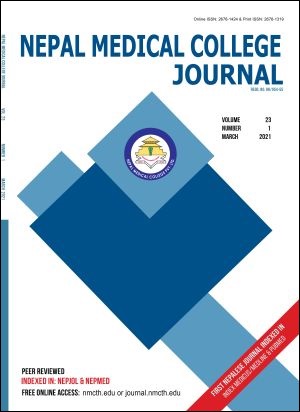Bacterial Analysis of Roof-harvested Rainwater and their Implications to Public Health in the Caribbean Island of Anguilla
DOI:
https://doi.org/10.3126/nmcj.v23i1.36235Keywords:
Roof harvested rain water, thermotolerant Escherichia coli, coliform bacteria, public health risk, Anguilla IslandAbstract
Anguilla is a dry to semi-arid island in the Caribbean where the majority of residents rely on roof-harvested rainwater. The objective of this study was to assess the presence of indicator coliform bacteria and associated health risk to the consumer in Anguilla. Rooftop rain water harvested samples were collected from 86 homes. Bacterial count was done by membrane filtration and culture on Difco Modified mTEC Agar and Hach m-ColiBlue24 agar. Bacteria grown on agar plates were counted by using darkfield colony counter. All owners or residents were interviewed for water use related gastroenteritis. Coliform bacteria were grown in 88.4% (76/86) samples with very few colonies to confluent growth of fecal E. coli, non-fecal E. coli and coliform other than E. coli. Results indicated that the majority of the samples contain the mixture of different coliform bacteria. Household survey revealed the majority of the households drink unpotable roof harvested rain water without any treatments and have the history of at least one episode of gastroenteritis-like illness during the past year. Our result is suggestive of that coliform bacterium detected in roof-harvested rainwater throughout Anguilla poses a potential health risk to the consumers and requires proper treatment for consumption.
Downloads
Downloads
Published
How to Cite
Issue
Section
License
This license enables reusers to distribute, remix, adapt, and build upon the material in any medium or format, so long as attribution is given to the creator. The license allows for commercial use.




